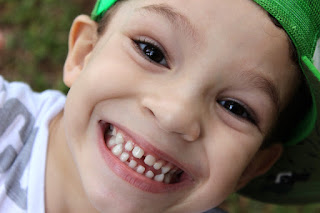Tongue Injuries & Your Child

Mouth injuries can happen quickly and sometimes bleed. If your child has fallen and has a cut or laceration on their tongue and there is excessive bleeding or the cut does not stop bleeding, here are 4 tips for taking care of the problem. Apply pressure to the cut and attempt to stop the bleeding. "A cold wash-cloth can help to decrease the bleeding and reduce the swelling," says Dr. Fulle r. 2. Rinse the blood from the mouth by tilting their head forward and pouring some water over the tongue. This will wash the blood from their mouth. This may need to be done once they are calm. 3. Reduce swelling and pain by wrapping an ice cube in a towel and placing it on the wound. 4. Insure you look in their mouth for broken teeth or other parts ...







